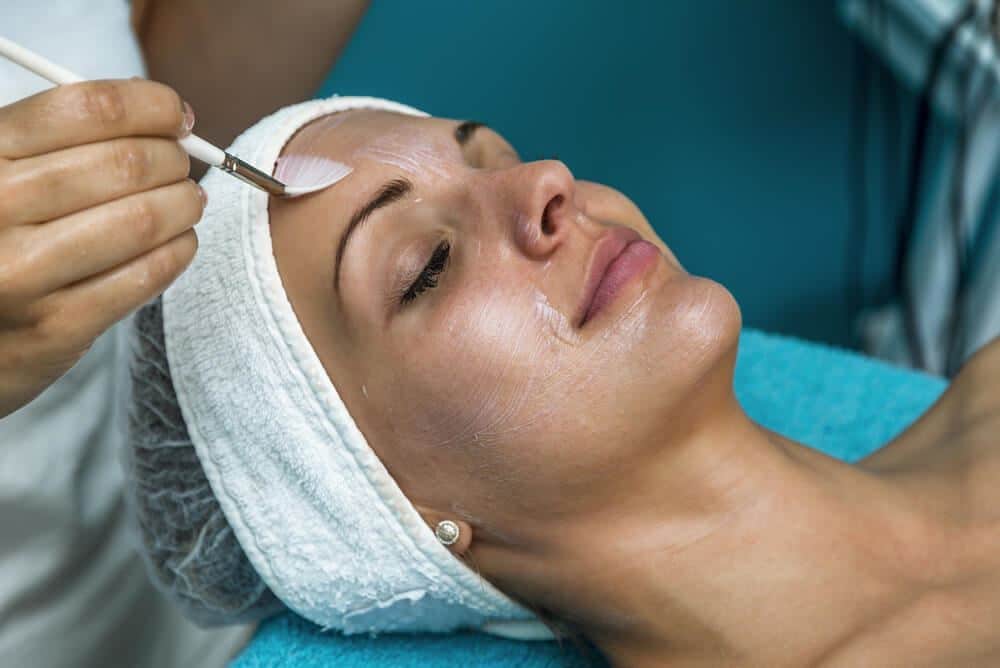
What are Chemical Peels?
A chemical peel is a technique used to make the skin healthier. While most are typically applied to the face, neck, and hands, they can be applied to other areas as well. A “medical grade” chemical solution is applied to the skin for a few minutes. Then a neutralizing solution is applied to the area to complete the treatment. After a few hours, the chemical peel will cause the top surface of the skin to exfoliate and eventually peel off. The new, healthy skin underneath is usually smoother and evenly colored. You will be surprised at how bright your skin looks after a chemical peel!
What Can Chemical Peels Improve?
Chemical peels can improve many conditions including:
- Acne/Pimples/Blackheads
- Large Pores
- Skin Discoloration
- Dark Spots
- Sun Spots
- Fine Lines and Wrinkles
Categories of Peels
There are three main categories of peels.
1. Superficial
A superficial peel gently exfoliates the skin. A lot of people call it a lunchtime peel because there is no downtime and you can go back to work right after. It works great for a quick, rejuvenated look.
2. Medium
A medium peel reaches deeper layers of the skin. This type of peel causes more peeling than a superficial peel.
3. Deep
A deep peel (you guessed it) penetrates deep levels of the skin. This peel requires some downtime and typically causes a good amount of peeling.
The category of chemical peels right for you depends on what you would like to target, skin color, and skincare regimen.
Ingredients in Chemical Peels
Superficial peels include one or a combination of the following ingredients: alpha-hydroxy acids, glycolic acid, lactic acid, or other fruit acids. Superficial peels that target acne and large pores typically contain salicylic acid.
Trichloroacetic acid is used for medium and deep peels. Phenol is the strongest ingredient, most typically found in deep peels.
Who Should Not Get Chemical Peels?
You should avoid chemical peels if you have a sunburn, active cold sore, or skin infection. Chemicals peels are also not recommended for people with sensitive skin or a history of psoriasis, eczema, or rosacea.
If you use a Retina-A or retinol cream, a vitamin C serum, and bleaching creams, I recommend stopping these 48 hours before your peel.
Do Chemical Peels Hurt?
Chemical peels sting a little when applied but there should not be pain. As the skin adjusts to the peel, the stinging lessens. The chemical peel is then neutralized or washed off, and the stinging should almost completely go away.
What Should I Expect After a Chemical Peel?
Peels that contain glycolic, lactic, fruit, and salicylic acid tend to be on the gentler side. Your skin may be a little red and have peeling for up to a week after. A moisturizer and a sunscreen are essential after a superficial chemical peel. You can wear make-up and go about your normal activities the day after the peel. There may be more redness, swelling, and irritation after medium or deep chemical peels. The downtime with medium and deep peels can be up to 2 weeks.
Where Should I Get a Chemical Peel?
It is important that chemical peels are performed by a licensed skincare professional, such as at a dermatologist’s office. You want to go to a place that has access to effective peel solutions that have been clinically proven to give you good results.
At NorCal Dermatology Group in Berkeley, we believe in the importance of simplicity in any skincare treatment or regimen. Our experience in skincare allowed us to custom tailor solutions for patients to help them maintain healthier, simpler skin.
At NorCal Dermatology Group, we provide:
- Cutting-edge skincare treatments.
- Weekend appointments.
- Short wait times.
- Personalized care and attention.
- A wide range of accepted health plans.
To book an appointment or to learn more about NorCal Dermatology Group, call 510-646-8065 today!

